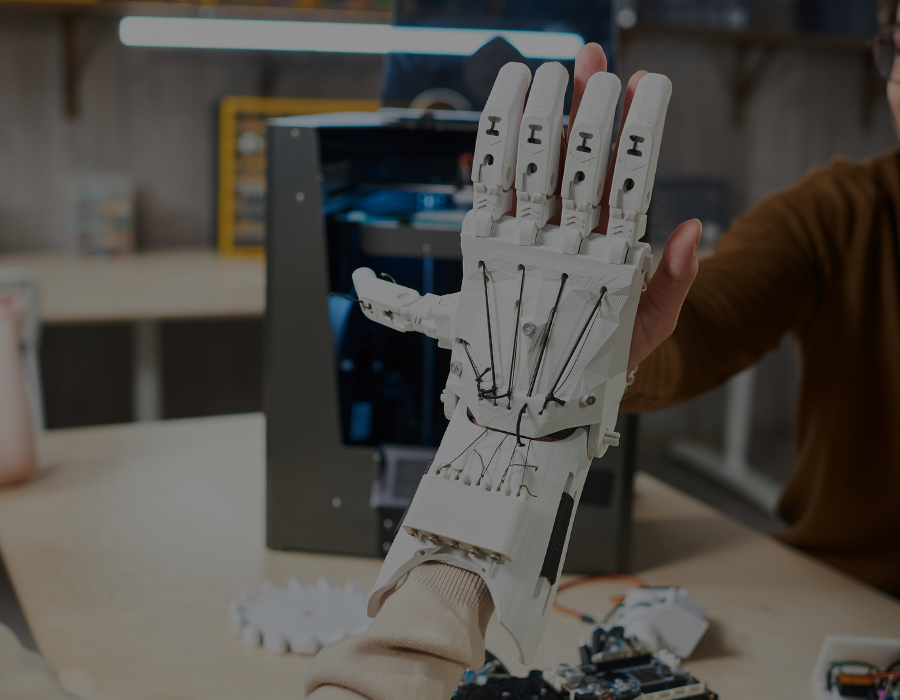Digital transformation of public services is a key priority for the UK Government, with artificial intelligence (AI) playing an important role in delivering that priority. Effective use of AI in public services could help bridge the growing gap between AI’s rapidly progressing technical capabilities and our ability to generate widespread public benefit from these technologies. To explore the role of AI in public service delivery, a recent ai@cam Policy Lab workshop brought together local government officials to share their experiences using AI, and lessons learned from those experiences.
Potential benefits from the use of AI in local government considered at the workshop included:
-
Enhancing resident interactions: AI-enabled conversational chatbots and voice assistants can help handle routine inquiries in local government contact centres. By analysing common call topics, councils can develop AI-powered assistants to provide accurate, up-to-date information to residents, potentially reducing the volume of calls that are escalated to human agents.
-
Making sense of complex datasets: Some councils are also leveraging AI to enhance public consultation and engagement. Digital platforms enabled by AI can automatically identify and summarise themes from thousands of responses received through online consultations. This analysis helps officials better understand diverse resident perspectives and needs. AI-enabled analysis can also help council officials made sense of diverse datasets relating to their assets – for example, housing stock – and develop strategies to help manage those assets more cost- effectively.
-
Boosting workforce productivity: In addition to these customer-facing applications, AI is providing valuable tools to streamline internal business operations. By analysing documents, producing meeting summaries, or drafting briefing notes, AI can help free up administrative staff to focus on other duties.
Many of these themes were also echoed by members of the public in ai@cam’s recent public dialogues on AI and the Missions for Government. These highlighted support for the use of AI in public services to streamline administrative systems or enhance decision-making. They also demonstrated a clear call for democratic control over the use of AI, so that AI is not used in ways that undermine front line workers, depersonalise people’s interactions with the state, or exacerbate concerns with bias, privacy, or security in digital systems.
The question that follows is how to translate those aspirations for AI into practice. Underlying these use cases are shared success factors that influence the effectiveness of AI systems in deployment:
-
User-led design: Successful AI deployments start by centring the needs of users and service delivery teams. Letting frontline staff lead the conversation about how AI can address their specific challenges helps build buy-in and rapidly identify potential pitfalls.
-
Robust governance and compliance: Given the high-stakes nature of many local government services, the safety and effectiveness of AI tools is paramount. Councils are working to establish clear governance frameworks, ensure regulatory compliance, and develop ethical guidelines to steer AI development and use.
-
Workforce upskilling: The rise of AI has significant implications for the skills and tasks involved in various local government roles. Proactive training and engagement with staff can help empower them to adopt and adapt to these new technologies, addressing concerns about automation’s impact.
-
Effective procurement: When procuring AI products or services, local government organisations need to understand what questions to ask to check proposed AI tools are fit for purpose, what due diligence is needed to ensure these tools work as intended, and how to ensure that proposed technology solutions align with business and resident needs.
Realising the potential of AI requires a thoughtful, user-centric, and values-driven approach that centres the needs of residents. By working with academic institutions and other councils, local authorities can access specialised expertise, share lessons learned, and develop open innovation ecosystems. ai@cam is facilitating these collaborative efforts, helping to bridge the gap between AI research and real-world public sector challenges. By continuing to share knowledge, collaborate across the sector, and engage the public, local authorities can build the foundations for an AI-powered future that transforms how people interact with essential public services.







